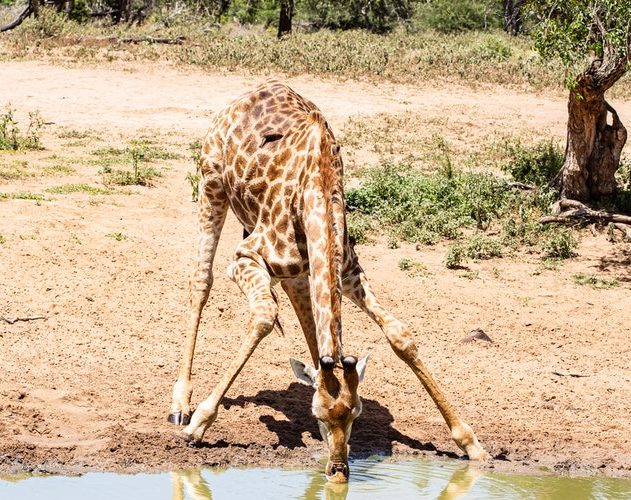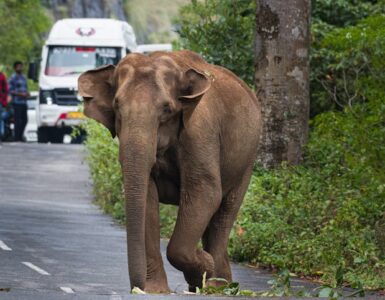The evolution of zoos from royal menageries to modern-day institutions reflects a complex history.
Initially, zoos served as symbols of power and were used for entertainment often involving cruel practices, devoid of any animal empathy and mismanagement. As scientific understanding grew, zoos began to focus on education and conservation.
However, the ethical implications of keeping animals in captivity remain controversial. While many zoos have made significant strides in animal welfare and conservation efforts, concerns about captive animals’ psychological and physical well-being persist.
The ongoing dialogue about the future of zoos highlights the need for a balance between human interest and animal welfare.
The Positives of Having Zoos

Protecting Endangered Species
Since the rise of ecological conservation in the 1970s, zoos worldwide have adopted a critical mission- safeguarding endangered species.
Modern zoos prioritize the protection and conservation of animals and their habitats. While they still entertain, their primary focus lies in environmental stewardship. Zoos provide a secure haven for endangered animals, fostering awareness and generating funds for wildlife initiatives and research.
Educating the Public
Zoos serve as valuable educational institutions, offering unique opportunities to engage with wildlife, especially for kids and students.
While children study many animals in their school lectures, zoos provide them with an experience of animals in flesh and blood, fostering empathy and environmental awareness. In cities and urban centres, zoos are the places where children see an animal for the first time.
Zoos provide accessible and affordable platforms for learning about diverse species, reducing the need for extensive travel. By highlighting the impact of climate change and other environmental issues on ecosystems, zoos also play a crucial role in promoting conservation efforts. The potential closure of zoos would significantly diminish public education about wildlife and nature.
Fighting Animal Extinction
Zoos play a critical role in combating wildlife extinction by protecting endangered animals. As habitat loss and poaching threaten numerous species, zoos have taken on the responsibility of preserving endangered animals.
Through dedicated breeding programs and essential veterinary services, zoos have successfully propagated various species, including those facing extinction.
Conduct Valuable Research
Zoos serve as vital research hubs, enabling scientists to study animal behaviour, physiology and ecology.
By observing animals in controlled environments, researchers gain insights into their needs, behaviours and health. Zoos contribute significantly to medical research, developing treatments for animal diseases and understanding the transmission of zoonotic diseases.
Through rigorous research, zoos also help address global challenges such as the impact of climate change on wildlife and biodiversity loss.
Providing Employment
Zoos also contribute to the local economy, particularly in developing countries. They create jobs, attract tourists and stimulate economic growth.
Challenges associated with Zoos
Entertain people at animals’ expense: While zoos can provide educational and conservation benefits, there are also significant ethical concerns.
Often zoos confine animals to unnatural and restrictive environments, even indulging them in entertainment performances. Furthermore, the practice of culling animals raises serious ethical questions.
Raising ethical concerns: The ethical implications of keeping animals in captivity are significant. The confinement of animals in small cages with iron rods raises concerns about their welfare and quality of life.
Many species with complex social structures and specific environmental needs, often suffer in captivity. Many large animal species like Elephants and Zebras prefer to stay in large groups instead of one or two confined in a space.
Harming animals’ health: Zoos often struggle to provide optimal living conditions for animals, particularly those with specific habitat and behavioural needs.
Confined spaces, restricted diets, exposure to artificial lights, and constant human interaction can lead to stress, physical ailments and abnormal behaviours. Additionally, reports of animal abuse and neglect continue to surface, highlighting the ethical concerns surrounding zoos.
Improper Management: The lack of adequate regulation and oversight in many countries contributes to the mistreatment of animals in zoos. In some regions, animals are treated as property rather than sentient beings, leading to poor living conditions and inadequate care.
While some zoos prioritize animal welfare and conservation, others prioritize profit and entertainment, often at the expense of the animals. Many zoos also don’t have financial means or trained human resources who can take care of animals.
Implementing stricter regulations and enforcing existing ones is crucial to ensure the well-being of captive animals. A ban on poorly managed zoos could be a step towards reducing animal suffering and promoting ethical treatment.
Future of zoos – Is it time to shut down the zoos?
Zoos present a complex ethical dilemma– while they serve as valuable tools for education, conservation and research, they also raise concerns about animal welfare and ethical treatment.
Zoos still play an important role in educating and igniting curiosity among the public, especially among small children. They also contribute to breeding programs for endangered species and support scientific research.
However, often these institutions fall short of their promises. They consume significant resources, generate waste and prioritize human entertainment over animal welfare. Therefore, the need of the hour is to mitigate the negatives of zoos.
While alternative approaches such as private conservation programs and animal sanctuaries offer effective ways to protect endangered species without the ethical connections of zoos, zoos often hold a nostalgic appeal for families.
Another approach towards the future of zoos that can be worth thinking about is keeping life-size replicas of some animals, enhanced with motions, expressions and sounds. Leveraging digital technologies like augmented and virtual reality can also be considered.
It is essential to shift towards more sustainable and compassionate approaches to wildlife conservation. By supporting ethical alternatives and advocating for animal rights, let us work towards a future where animals are protected and valued. Zoos should also adhere to strict ethical guidelines, provide ample space and enrichment and avoid practices that exploit animals for entertainment. Visitors should also support zoos that prioritize animal well-being and ethical practices.






Add comment